

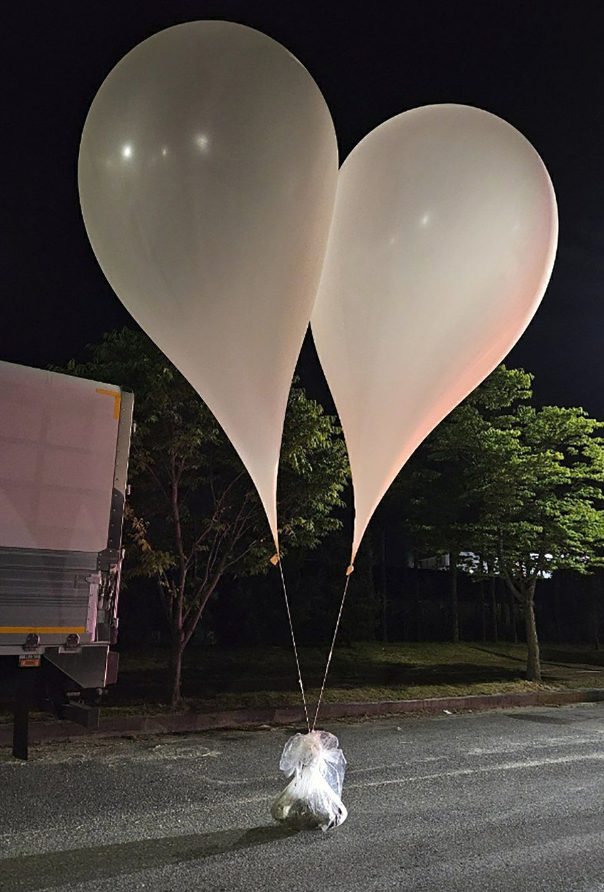
In a retaliatory move against anti-Pyongyang leaflets being launched by activists and North Korean defectors in South Korea, North Korea has launched over 5,000 trash-filled balloons towards South Korea. However, amidst this act, South Korea has captured satellite images of North Korean troop movement towards Russia, with evidence of 12,000 troops being deployed to support the ongoing war in Ukraine. While two of the images were attributed to Airbus, the third image was taken by a satellite that South Korea has been operating, equipped with synthetic aperture radar that can collect data regardless of weather.
North Korea's Escalating Provocations and South Korea's Intelligence Gleanings
Tensions between North Korea and South Korea have escalated in recent days, following a series of retaliatory actions and intelligence findings.
North Korea's Balloon Propaganda Barrage
In response to anti-Pyongyang leaflets being launched from South Korea, North Korea has retaliated by launching over 5,000 propaganda-filled balloons across the border. The balloons carried messages criticizing the South Korean government and the United States, and are seen as a symbolic attempt to undermine the stability of the region.
South Korea's Troop Movement Intelligence
Amidst the balloon barrage, South Korea has released satellite images that reportedly show North Korean troop movement towards Russia. The images, attributed to Airbus and South Korea's own satellite, indicate that over 12,000 troops have been deployed to support the ongoing war in Ukraine. This intelligence has raised concerns about North Korea's military involvement in the conflict.
Background
The current tensions are part of a long-standing pattern of hostility between the two Koreas, which remain technically at war after the Korean War (1950-1953) ended in an armistice, not a peace treaty. North Korea has a history of engaging in provocative actions, including missile launches, nuclear tests, and cyberattacks, in order to assert its power and seek concessions.
Top 5 FAQs
1. Why is North Korea sending propaganda balloons?
North Korea claims that the balloons are a form of retaliation against anti-Pyongyang leaflets being launched from South Korea. However, many analysts believe that the balloons are also a way for North Korea to test South Korea's defenses and send a message of defiance.
2. What evidence does South Korea have of North Korean troop movement?
South Korea has released satellite images that reportedly show North Korean troops moving towards Russia. The images, attributed to Airbus and South Korea's own satellite, have been analyzed by experts who believe that they provide strong evidence of North Korea's military involvement in Ukraine.
3. What is the significance of North Korea's troop deployment to Ukraine?
Analysts say that North Korea's troop deployment to Ukraine could signal its willingness to support Russia in the conflict. This could have implications for the war in Ukraine, as well as for the wider geopolitical landscape.
4. What is the likelihood of war between North and South Korea?
While tensions are high, experts believe that a full-scale war between North and South Korea is unlikely. However, the situation remains volatile, and any misstep could lead to an escalation of violence.
5. What is the international community's response to these events?
The international community, including the United Nations and the United States, has expressed concern over North Korea's recent actions. They have called on North Korea to cease its provocative behavior and return to dialogue and diplomacy.

In a massive retaliatory action against Pakistan's continued support of terrorism, India launched Operation Sindoor and inflicted heavy losses on both Pakistani military personnel and terrorist camps along the Line of Control. The Indian Army, in collaboration with the Air Force, conducted precision operations that resulted in the elimination of over 100 terrorists, including high-value operatives responsible for past terror attacks. Despite facing resistance from Pakistani fighter aircraft, Indian forces were able to maintain complete surprise and minimal damage while achieving maximum impact.

Today, on May 12, 2025, Buddhists around the world are celebrating Buddha Purnima, also known as Vesak or Buddha Jayanti. This significant spiritual event commemorates the birth of Gautama Buddha and his teachings of compassion, peace, and enlightenment. As a time for reflection, meditation, and acts of kindness, it is a meaningful occasion for millions to share quotes, wishes, messages, and poems with loved ones.

Amidst heightened tensions between India and Pakistan, Defence Minister Rajnath Singh inaugurated a major BrahMos missile production unit in Lucknow on Sunday. The state-of-the-art facility, built through a joint collaboration between India and Russia, is set to produce between 80 to 100 missiles annually and will play a central role in substantially enhancing India's defence capabilities. With Uttar Pradesh emerging as a hub for defence manufacturing, the state government is aiming for further investments in the sector. This development comes in the backdrop of a ceasefire announcement between India and Pakistan, in an effort to de-escalate the recent cross-border conflict.

Explosions and Fear in Jaisalmer as India and Pakistan Continue Cross-Border Conflict Multiple Explosions and Precautions Set Off in Jaisalmer Amid India-Pakistan Conflict Both India and Pakistan on High Alert as Tensions Escalate in Border Town of Jaisalmer
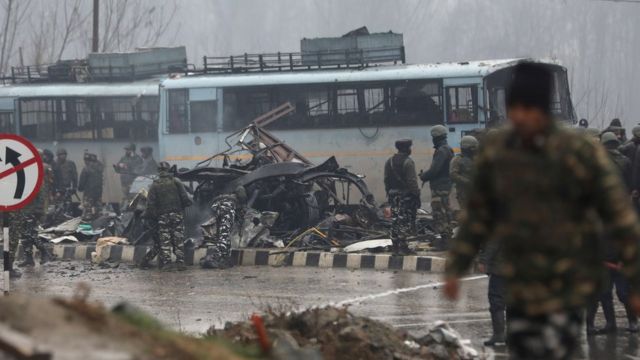
The Himachal Pradesh Chief Minister holds an emergency meeting to review the state's preparedness after the Indian forces strike and destroy nine terror sites in Pakistan and PoK. Flight services in Shimla are suspended and a mock drill to test the state's security and evacuation systems is conducted. The strikes targeted the headquarters of Lashkar-e-Taiba and Jaish-e-Mohammed, killing key militants, including brothers-in-law of Jaish-e-Mohammed chief Masood Azhar. The chief minister also issues directives to monitor social media and avoid large gatherings, while urging the public to actively participate in the exercises.
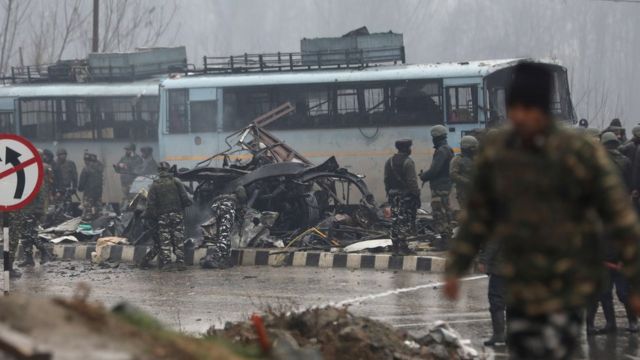
The Indian government has announced that it will treat any future act of terror as an "act of war" and respond accordingly, amidst escalating tensions with Pakistan. Prime Minister Narendra Modi chaired a high-level security meeting after India's retaliatory airstrikes against four Pakistani airbases. Indian defence forces successfully engaged and retaliated against Pakistan's attacks, but airbases and personnel suffered damage. India firmly rejects Pakistan's "malicious misinformation campaign" and highlighted their attempts to circulate false narratives regarding damage to critical Indian military assets.
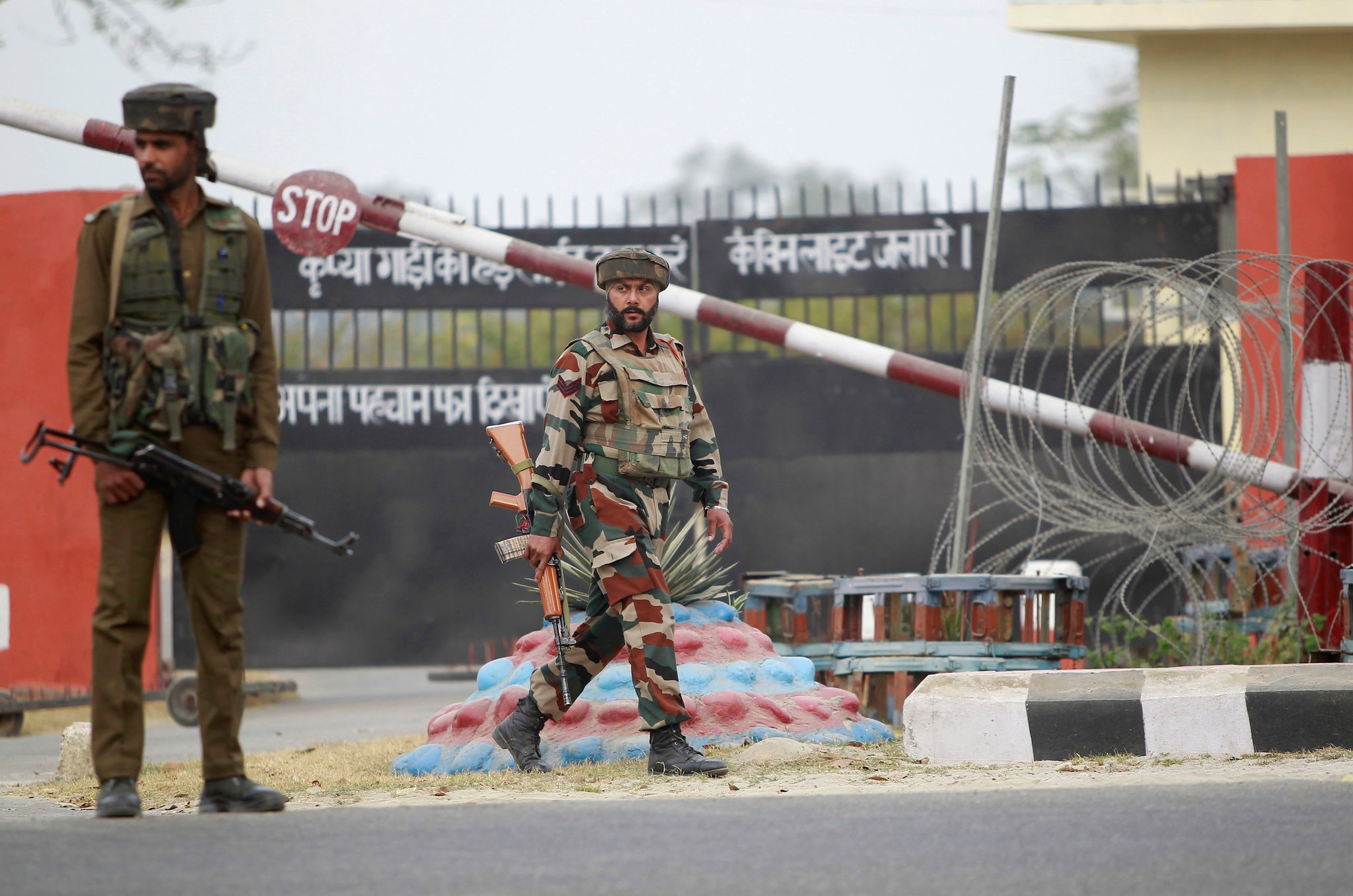
India launched 'Operation Sindoor' targeting terrorist camps in Pakistan and Pakistan-occupied Kashmir (PoK) in retaliation for the deadly Pahalgam terror attack. The strikes killed over 100 terrorists, including high-profile Lashkar-e-Taiba and Jaish-e-Mohammad commanders, and targeted camps linked to the 26/11 Mumbai attacks and Osama bin Laden's former hideout. Among the terrorists killed was Abu Jundal, the commander of the Muridke camp, who oversaw training and operations for Lashkar-e-Taiba militants responsible for major attacks in India. The funeral for Jundal was attended by a serving Lieutenant General of the Pakistan Army and the Inspector General of Punjab Police, highlighting the presence and support of the Pakistani government for these terrorist groups.
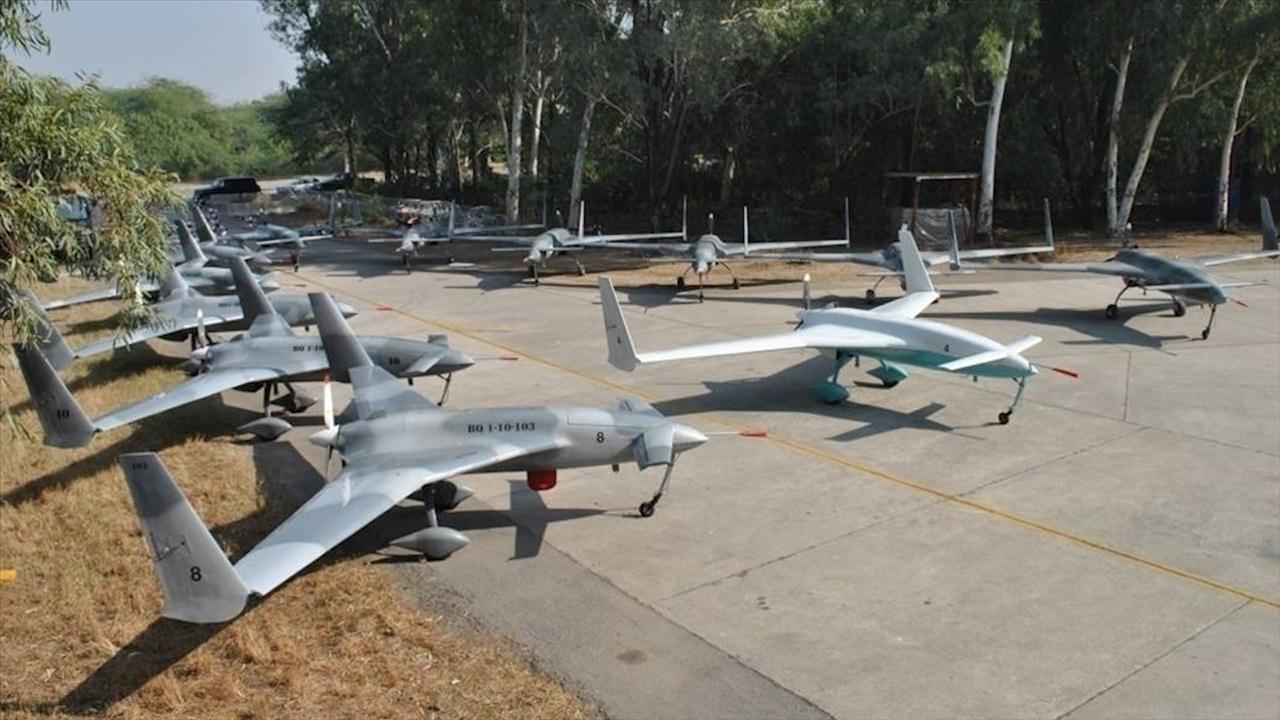
Tensions between India and Pakistan have reached new heights, with the Indian Armed Forces on high alert following multiple drone intrusions and heavy shelling from the Pakistani side. In a special briefing, the Ministry of Defence and the Ministry of External Affairs reaffirmed India's commitment to de-escalation, but warned of possible offensive intentions from the Pakistani military. Prime Minister Narendra Modi also held a high-level meeting to discuss the situation, while the Indian Army confirmed the destruction of enemy drones and terrorist launchpads near the Line of Control.
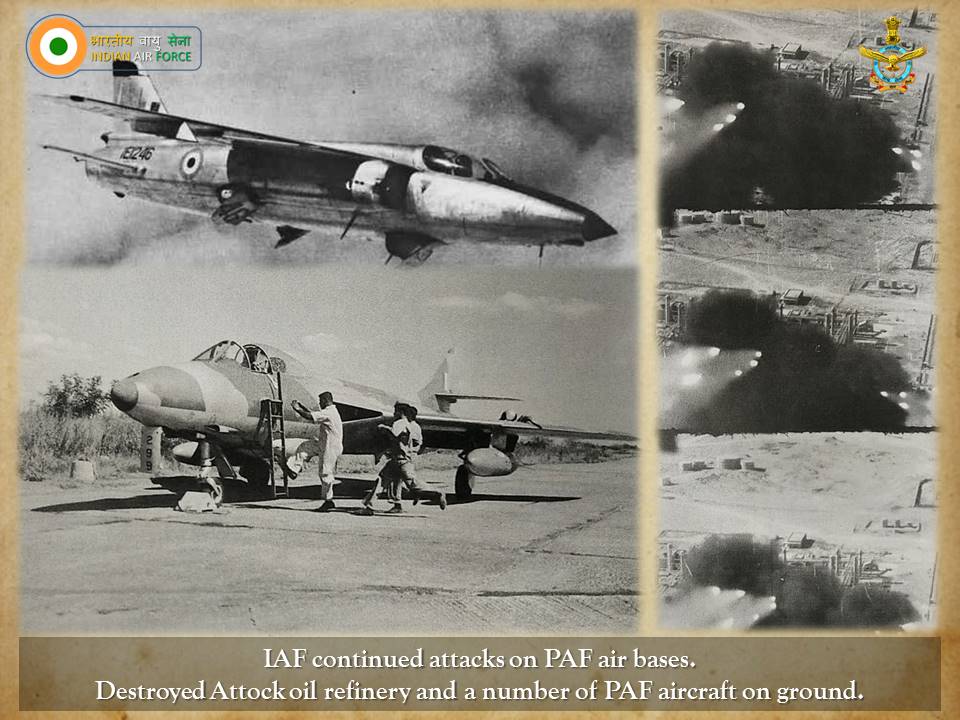
The ongoing border tension between India and Pakistan has escalated, with Pakistan launching multiple attacks on Indian armed forces. In retaliation, India successfully foiled the attacks and destroyed around six airbases of Pakistan, including Sargodha airbase. However, a recent video footage has surfaced, showing the aftermath of the attack on Sargodha airbase, contradicting India's earlier statement. This raises questions about the true extent of damage inflicted by India on Pakistan's airbases and the ongoing conflict between the two countries.
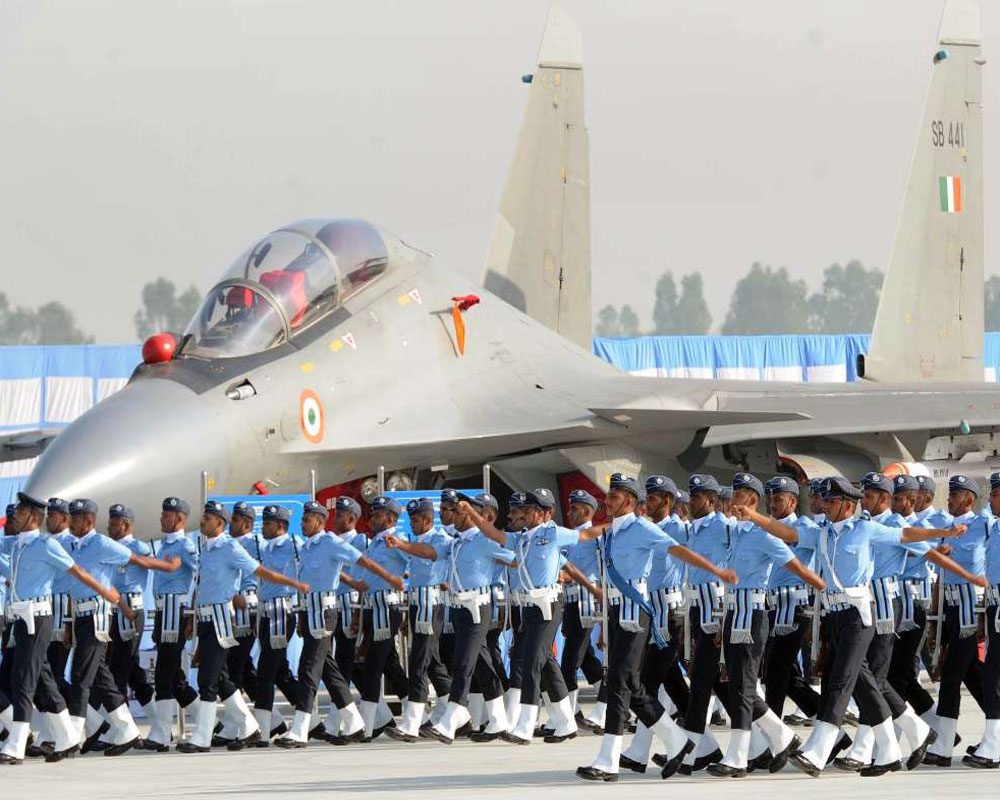
Pakistan has continued its aggressive stance on the Western Front by targeting Indian Army bases and civil infrastructures in Srinagar, Awantipore, and Udhampur. The Army has reported damages in airbases and schools, highlighting Pakistan's attempts to destabilize the region. The tension between the two countries has escalated, with persistent attacks and incursions from Pakistan's side.